Top 12 Best Magnesium Rich Foods
Magnesium rich foods should be used in nearly every meal we consume. Our current society is plagued with magnesium deficiency affecting an estimated 80% of individuals in the United States today. The average standard diet consists of 175 mg/day of magnesium down from an average 500 mg/day representative of diets in the 1900’s. (18) Most people are just not consuming enough magnesium rich foods.
Dr. Norman Shealy, M.D., Ph.D. is an American neurosurgeon and a pioneer in pain medicine. He says, “Every known illness is associated with a magnesium deficiency,” and that, “magnesium is the most critical mineral required for electrical stability of every cell in the body. A magnesium deficiency may be responsible for more diseases than any other nutrient deficiency. (2)”
When the majority of people don’t meet the recommended daily allowance (RDA) for an essential nutrient, the health consequences are severe and extremely prevalent today. The top 12 best food magnesium rich foods outlined in this article will allow you to replenish your magnesium levels and support your overall vitality and well-being.
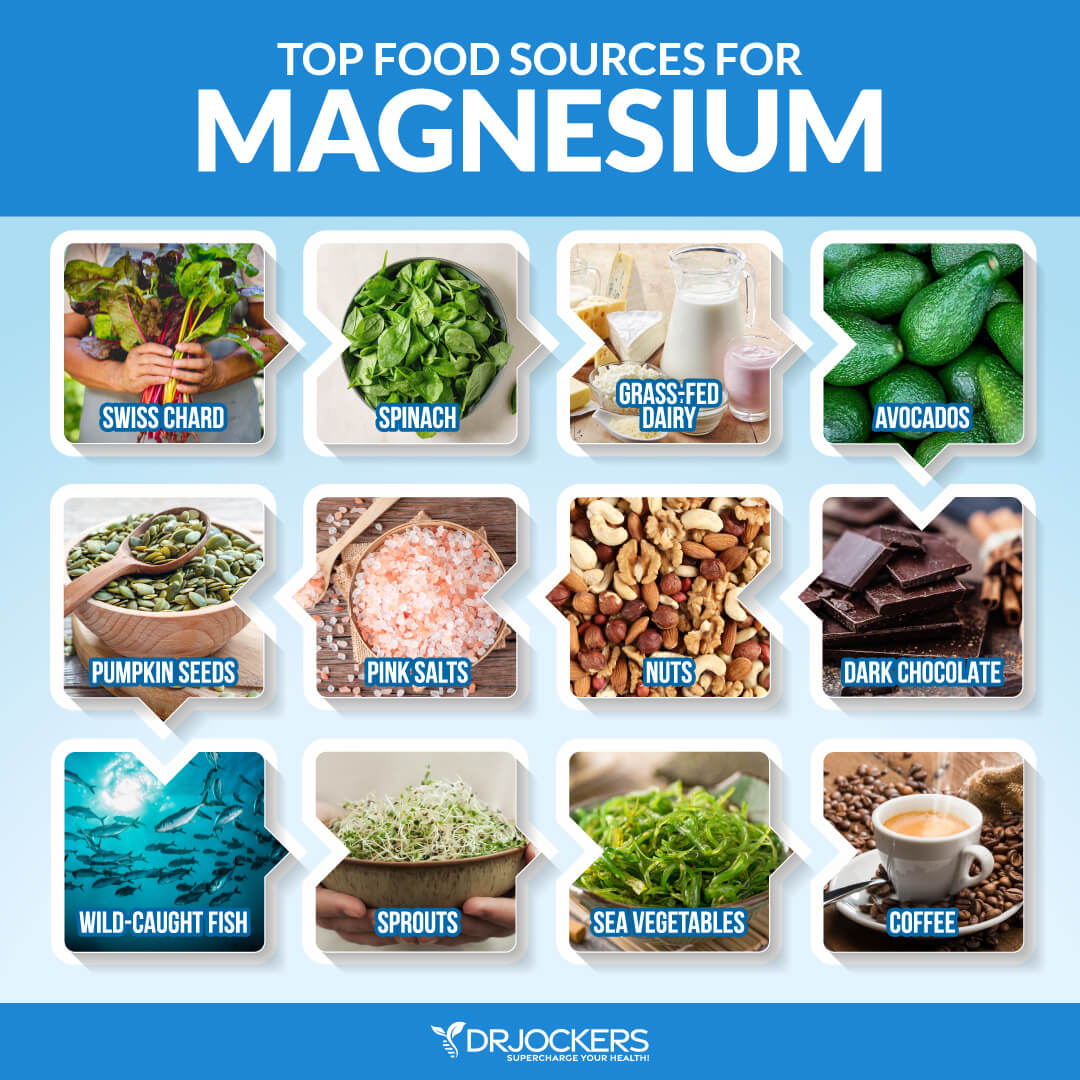
Essential Role of Magnesium to Health
Magnesium plays a key role in intra-cellular health. It manages the electrical gradient within cells so that the nervous system is not easily excited. More than 300 enzymes alone require magnesium to perform their biological roles in tissue and organs (1).
The body relies on optimal magnesium absorption for:
- Memory function
- Regulating mood and stress
- Muscle relaxation and sleep
- Blood sugar control
- Healthy bone density
- Cardiovascular support
- Detoxification pathways in the liver
- Normal gut motility
The RDA for magnesium ranges accordingly: (15)
Children up to 13 years of age: 80-240 mg/day
Females over 14 years of age: 310-360 mg/day
Pregnant and nursing women: 310-400 mg/day
Males over 14 years of age: 400-420 mg/day
Most natural health experts agree that these levels are considerably lower than they should be and yet close to 80% of our population is not even getting this level. As a functional health practitioner, I will put many of my clients on 1-2 grams of magnesium each day…with no fear of an overdose and they respond amazingly well. Many will tell me that the magnesium dramatically improved their sleep quality, mood, memory and overall performance.
Calcium to Magnesium Ratio
Unlike our ancestors whose balance of calcium to magnesium levels were equal, our lifestyle habits today lead to an imbalance in this key electrical gradient. The result is a 10:1 calcium to magnesium ratio. This ratio disrupts the healthy balance of electrolytes within cells making nerves more susceptible to stress and pain perception.
Declining magnesium levels in Western societies is dictated by a wide range of variables. Most common are chronic stress and poor dietary habits such as high sugar intake, over consumption of processed foods and too little intake of plant-based nutrients found in the magnesium rich foods.
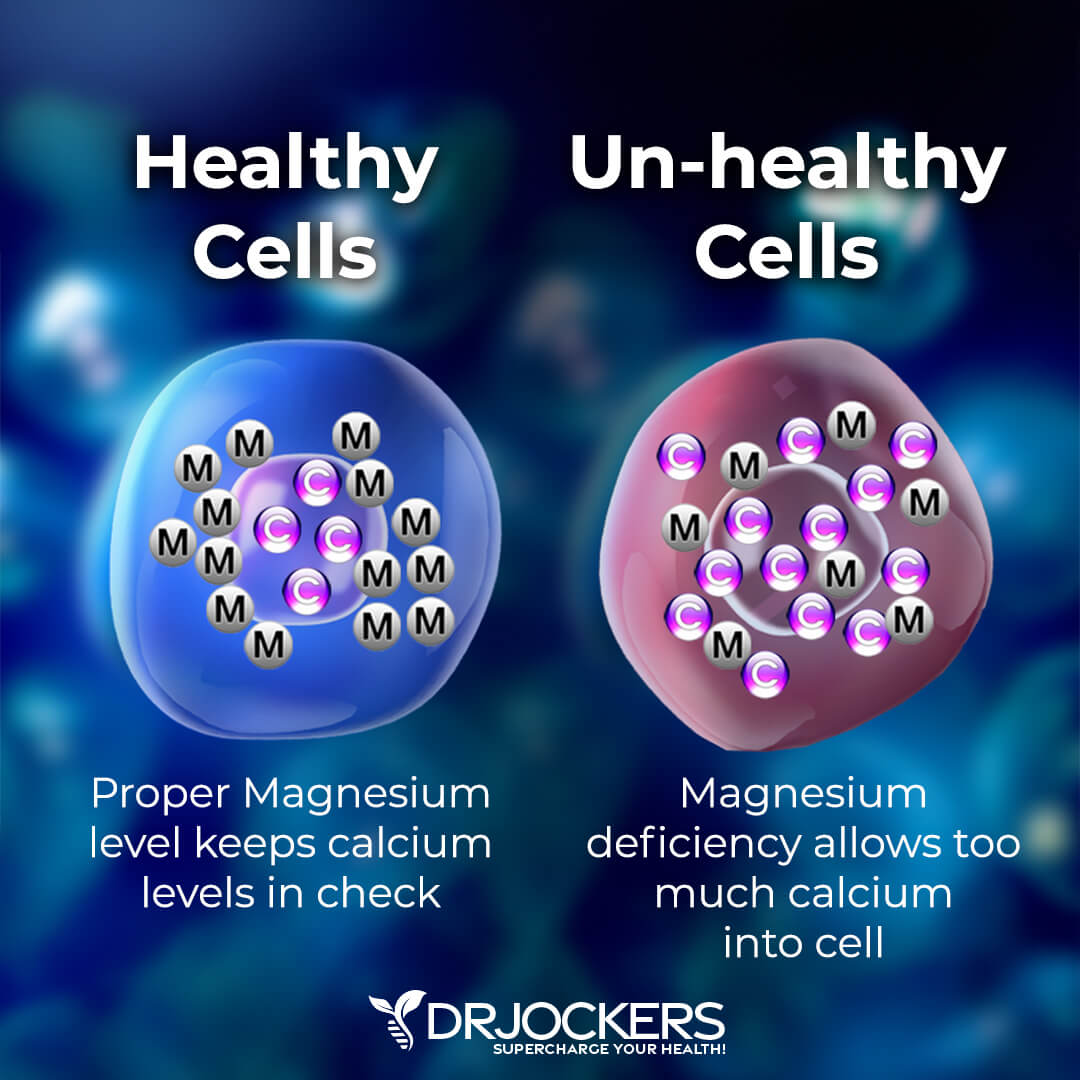
Magnesium Deficiency Symptoms
Deficiency leads to a variety of health disturbances and diseases. Do you have any of the following top symptoms of magnesium deficiency?
- Poor cognitive thought
- Headaches and chronic migraines
- Constipation and related disorders like IBS (irritable bowel syndrome)
- Fatigue (physical, mental and emotional)
- Insomnia
- Muscle spasms
- Cramping
- Chronic Pain
- Heart arrhythmia’s
- Numbness and tingling
- Fibromyalgia
- Mood disorders such as ADHD, anxiety and depression
A staggering list of widespread diseases is associated with magnesium deficiency. Some of these include Alzheimer’s disease, type-2 diabetes, premenstrual syndrome, hypertension, cancer, multiple sclerosis, and chronic immune disorders. (2) Consuming magnesium rich foods can make a world of difference in these conditions.
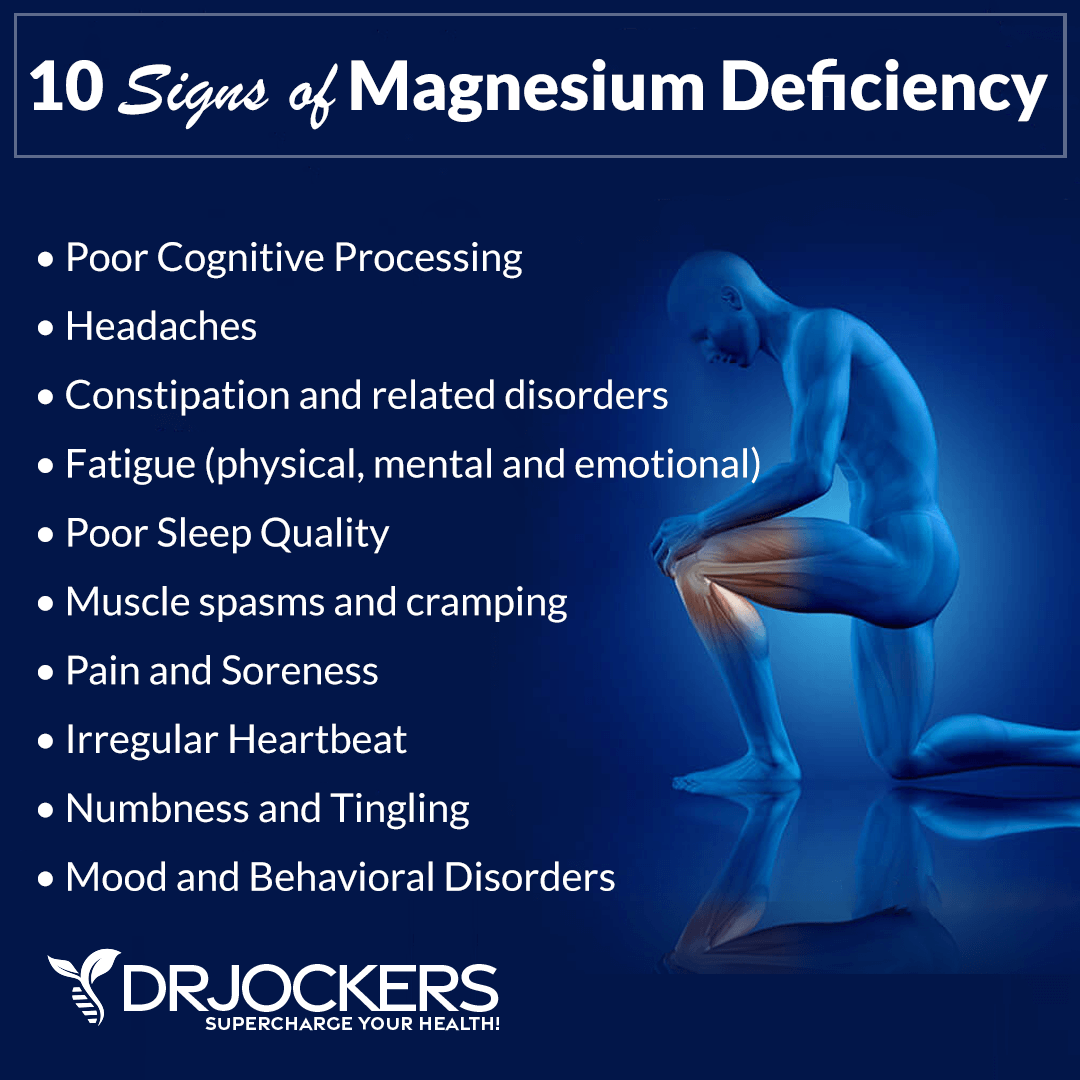
Top Magnesium Rich Foods
Consuming magnesium rich foods in your daily diet can help you reduce complications associated with metabolic and inflammatory issues. The biggest things that drain magnesium levels include blood sugar imbalances and chronic stress.
If you notice you are under an increased amount of stress or have enjoyed a high carbohydrate meal or dessert, then look to consume more of these magnesium rich foods and consider adding in a good magnesium supplement which I discuss at the bottom of this article. Try to make at least 10 of these 12 magnesium rich foods staple parts of your daily nutrition plan.
1. Swiss Chard
Dark leafy greens and are some of the richest sources of dietary magnesium. Green vegetables like Swiss chard offer nutrients like magnesium that buffer the pH of the body from the effects of acidic foods. Increasing dietary magnesium levels is critical to this homeostatic process because it prevents the minerals in bones from being depleted to perform this buffering effect. (11)
Women are uniquely susceptible to the effects of magnesium deficiency because of changes in estrogen levels. When estrogen concentrations are elevated, magnesium intake is required in higher amounts to improve the balance of calcium to magnesium in the blood. Increasing dietary magnesium in these women can lower the risk of cardiovascular events like thrombosis. (12)
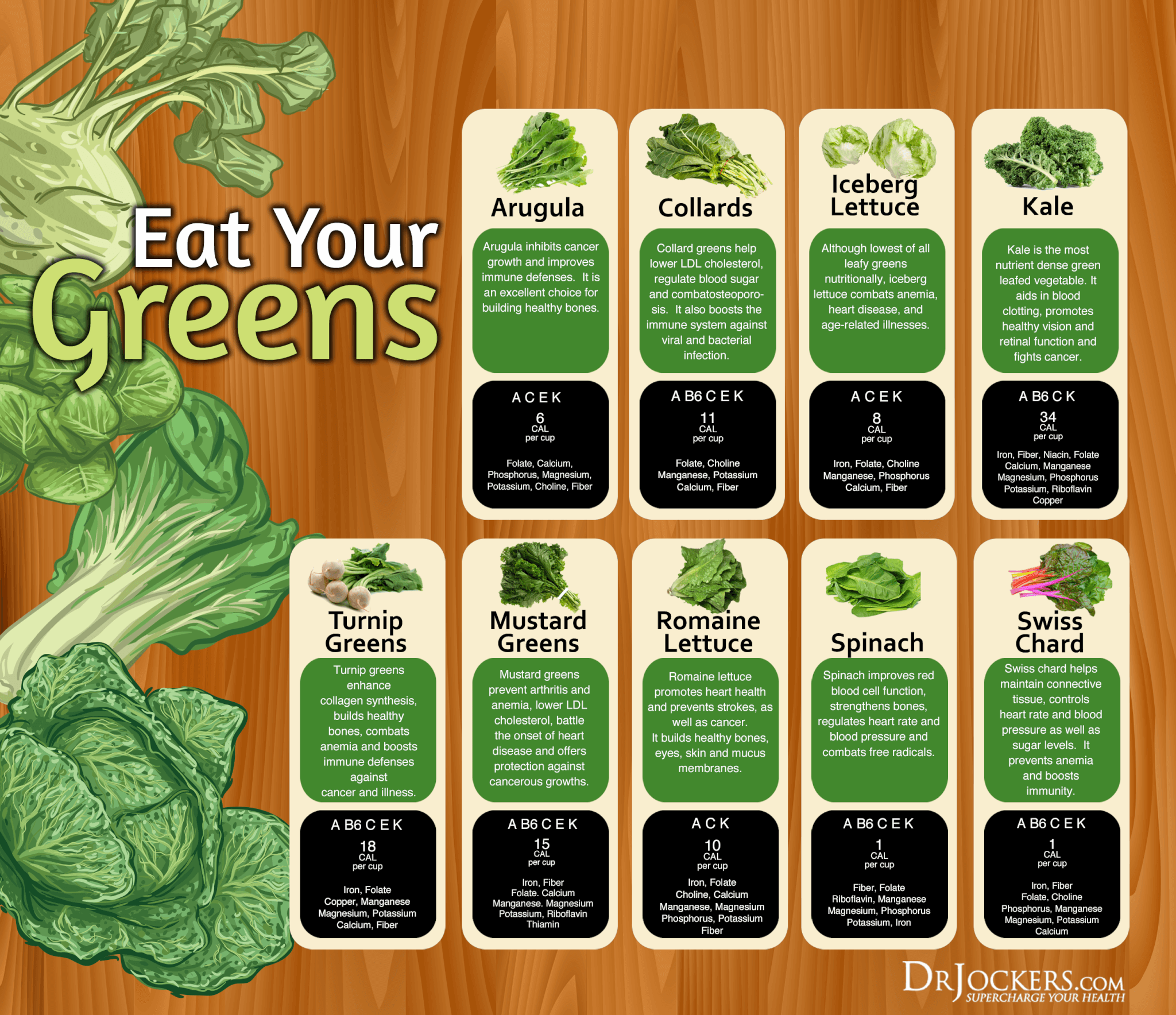
2. Spinach
Spinach is a fiber-rich food loaded with nutrients like folate, potassium and vitamin B6 and is one of the best green vegetable sources for magnesium. Adding spinach to your diet is also easily accomplished. Use it in salads, add it to smoothies, prepare it in fresh juices and incorporate in almost any dish like omelets. The anti-inflammatory benefits of spinach will encourage muscle relaxation and reduce symptoms of constipation (4).
A study of men who ate spinach daily had higher levels of magnesium and a better calcium to magnesium ratio (25). Eating spinach regularly offers an effective and natural way to reduce the frequency of migraine headaches and limit their severity when they do occur. Adding up to another 100 mg/day of magnesium through dietary foods like spinach is associated with an 8% risk reduction in stroke because magnesium naturally lowers high blood pressure (26).
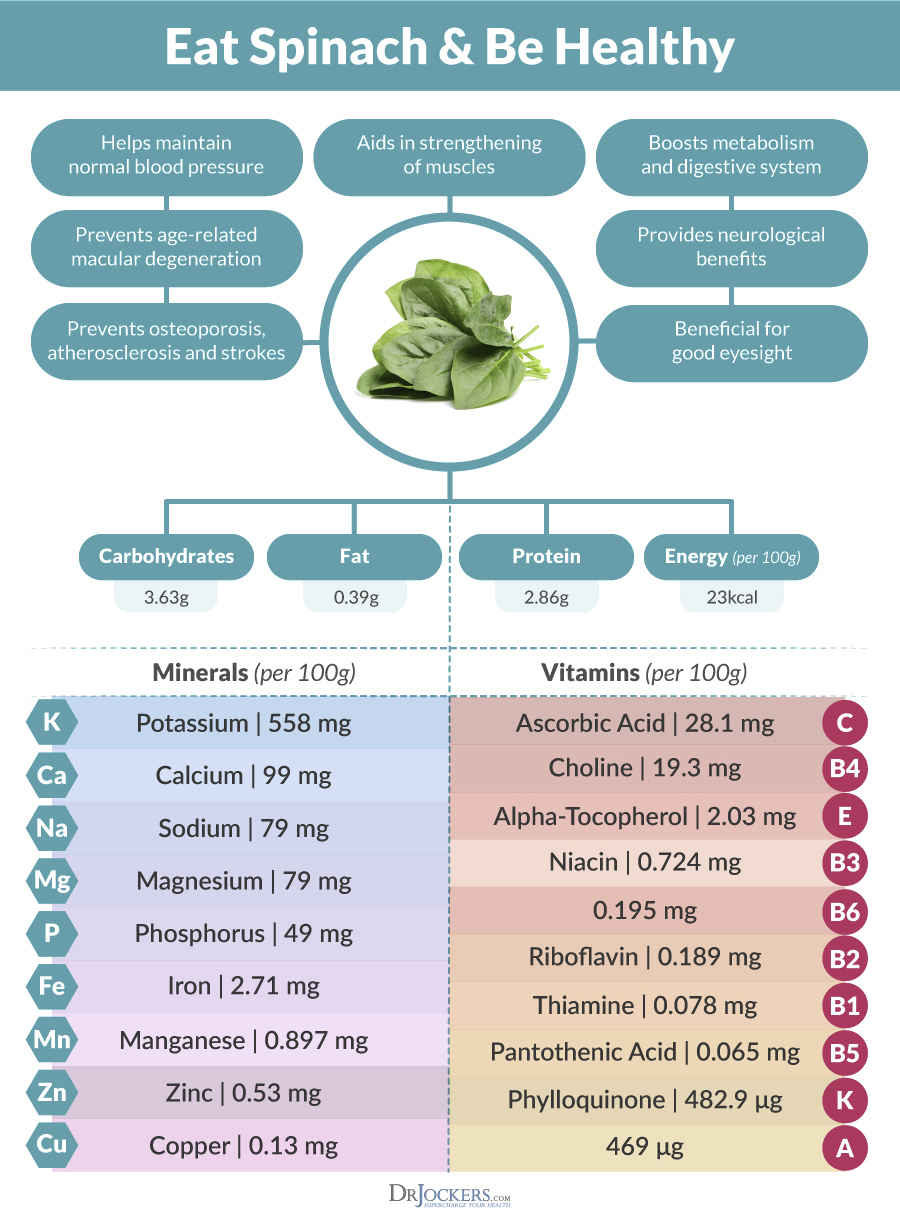
3. Grass-Fed Dairy
The acidity from conventional dairy products causes magnesium and other minerals to leach from bones, joints and muscle tissue. Raw grass-fed dairy, however, supplements the body’s nutritional need for magnesium. These sources also provide anti-inflammatory and sugar stabilizing nutrients like omega-3 fats and vitamin D.
If you experience lactose sensitivity or intolerance from consuming pasteurized grain-fed dairy milks and cheeses, switching to raw dairy may be a natural solution to overcoming this problem. Raw milks and cheeses contain higher concentrations of the enzymes need to digest lactose and absorb magnesium and other nutrients. If a lactose allergies persists, grass-fed ghee or clarified butter is also rich in magnesium and contains only traces of lactose.
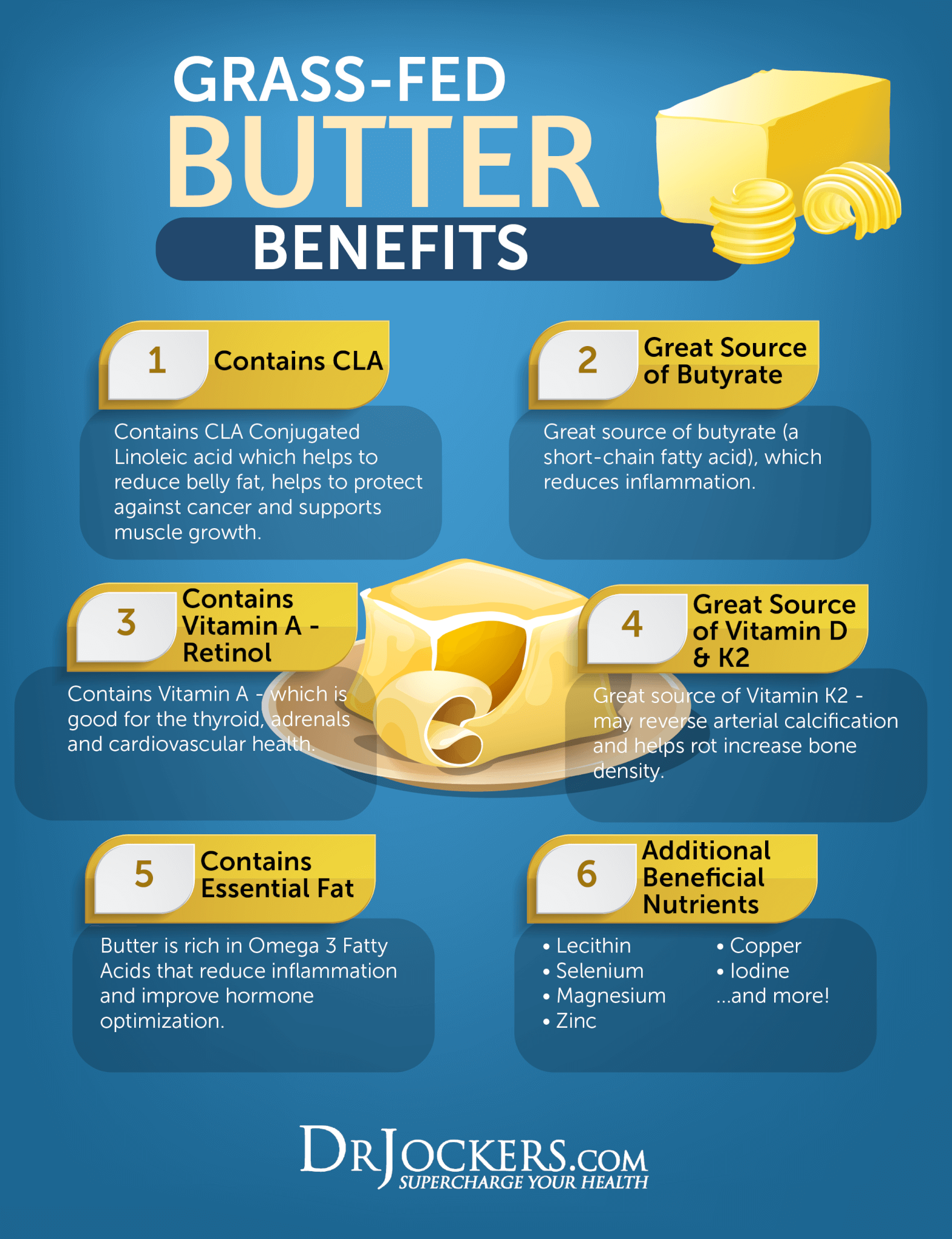
4. Avocados
Avocados are a rich source of magnesium, B-complex vitamins, vitamins A, C, E, K and healthy fatty acids. Consuming avocados regularly can help slow the progression of neurological decline and stimulate serotonin and dopamine pathways in the brain. (5, 6)
Half an avocado provides 20 mg of magnesium and is an excellent way to promote vascular strength and regulate insulin levels. Consume half an avocado in your post-workout smoothie to combat fatigue and elevate your mood. Magnesium inhibits fat absorption helping weight management and was shown to reduce the risk of coronary heart disease in a follow-up study of almost 40,000 men (16). (17)
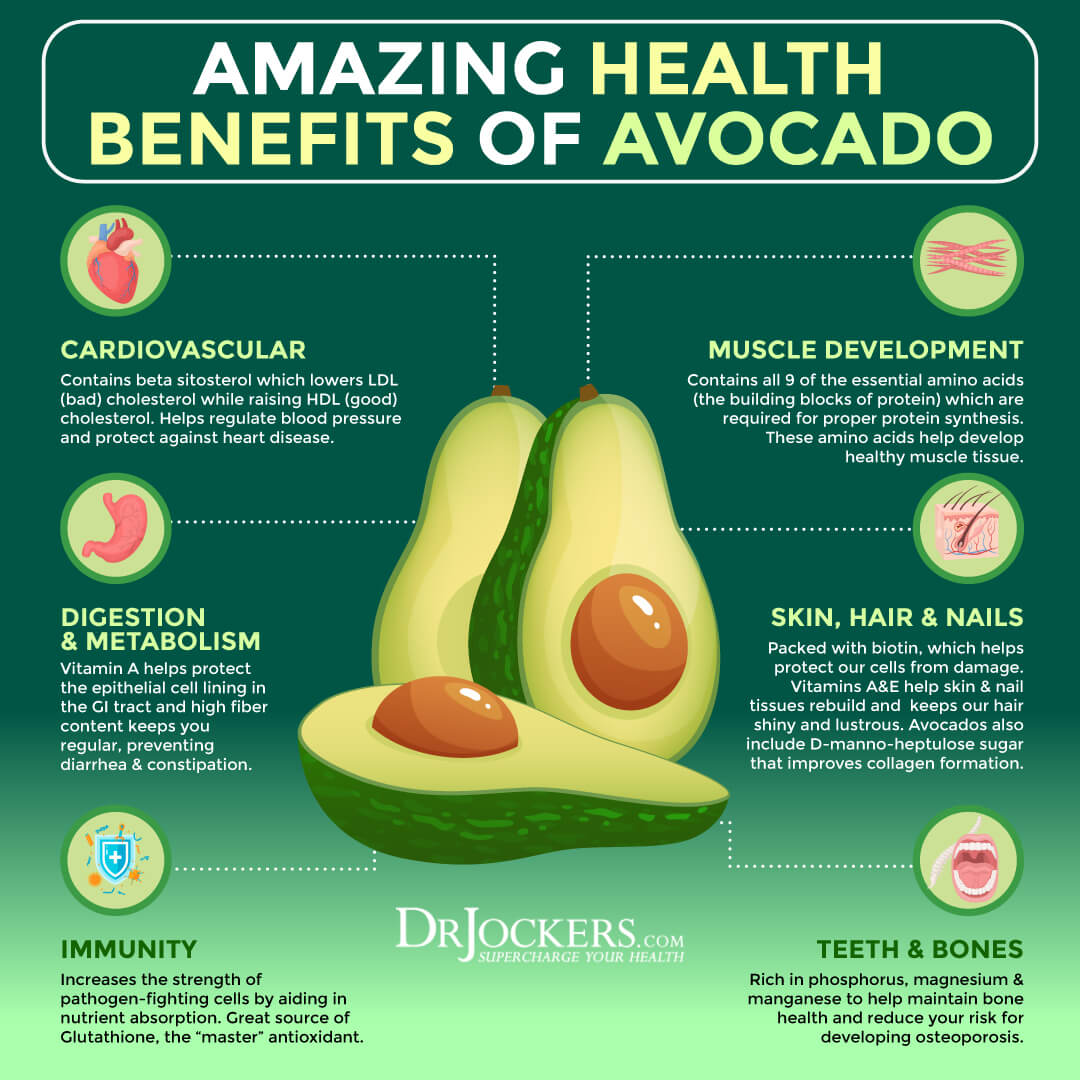
5. Pumpkin Seeds
Total health is dependent on the optimal function of the gastrointestinal tract. Cleansing the intestines is essential for eliminating toxins and impurities that can lead to systemic complications. The magnesium in pumpkin seeds improves gut motility by decreasing the amount of time it takes for waste to leave the colon. (7)
Magnesium is a natural muscle relaxant that stimulates stool movement in the bowels. Relieve symptoms of constipation and replenish your magnesium levels under times of high stress by snacking on pumpkin or chia seeds (8) which are excellent magnesium rich foods. Consider adding sprouted pumpkin seeds to salads, omelets and combine into dessert recipes.
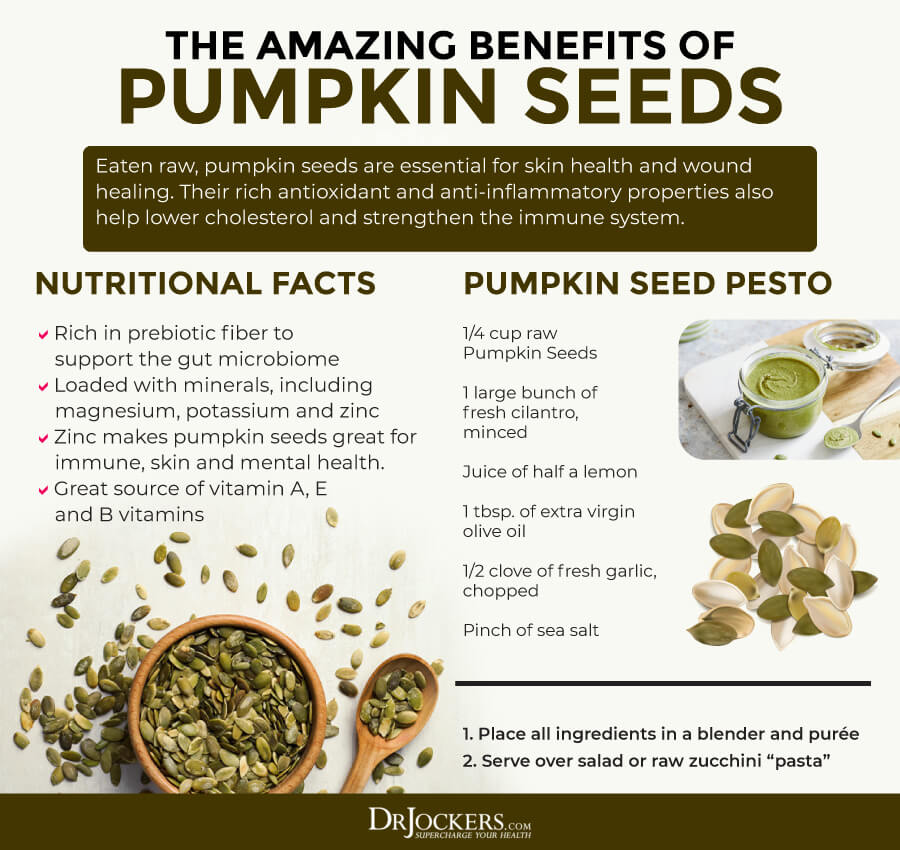
6. Sea Vegetables
Known for the deep chlorophyll rich color, sea vegetables are also one of the top magnesium rich foods. The combination of chlorophyll and magnesium prevent the toxic accumulation of carcinogens in the nervous system while boosting nerve and brain function. Sea vegetables up-regulate antioxidant pathways to combat oxidative stress and prevent the depletion of magnesium levels. (3)
Try incorporating seaweeds like dulse, nori and kelp into your diet to boost your magnesium concentration and support immune defenses. Kelp is one of the top magnesium rich foods with 121 mg of magnesium in 100 grams of kelp. Sprinkle Bragg’s Organic Sea Kelp Delight Seasoning or Herbamare to enrich the flavor and nutrient profile of any dish. You can also enjoy Sea Snax which are a very tasty way to enjoy sea vegetables.

7. Pink Salts
Compared to table salt which is toxic and can inhibit the proper absorption of magnesium into the body, pink salts provide vital trace minerals for health. Examples are Himalayan pink salt and Redmond’s Real Salt mined from volcanic sea deposits. The trace minerals they contain are reflected in their natural pink hues.
The purity of pink salts makes them a great dietary source of magnesium for improving electrolyte balance. They also contain nutrients like iodine, manganese, potassium and zinc.
Consider adding a pinch of pink salt into your water following an intense workout or extended period of sweating to stabilize your electrolyte imbalance and prevent magnesium deficiency. Doing so will reduce symptoms of dehydration and prevent muscle spasms and fatigue.
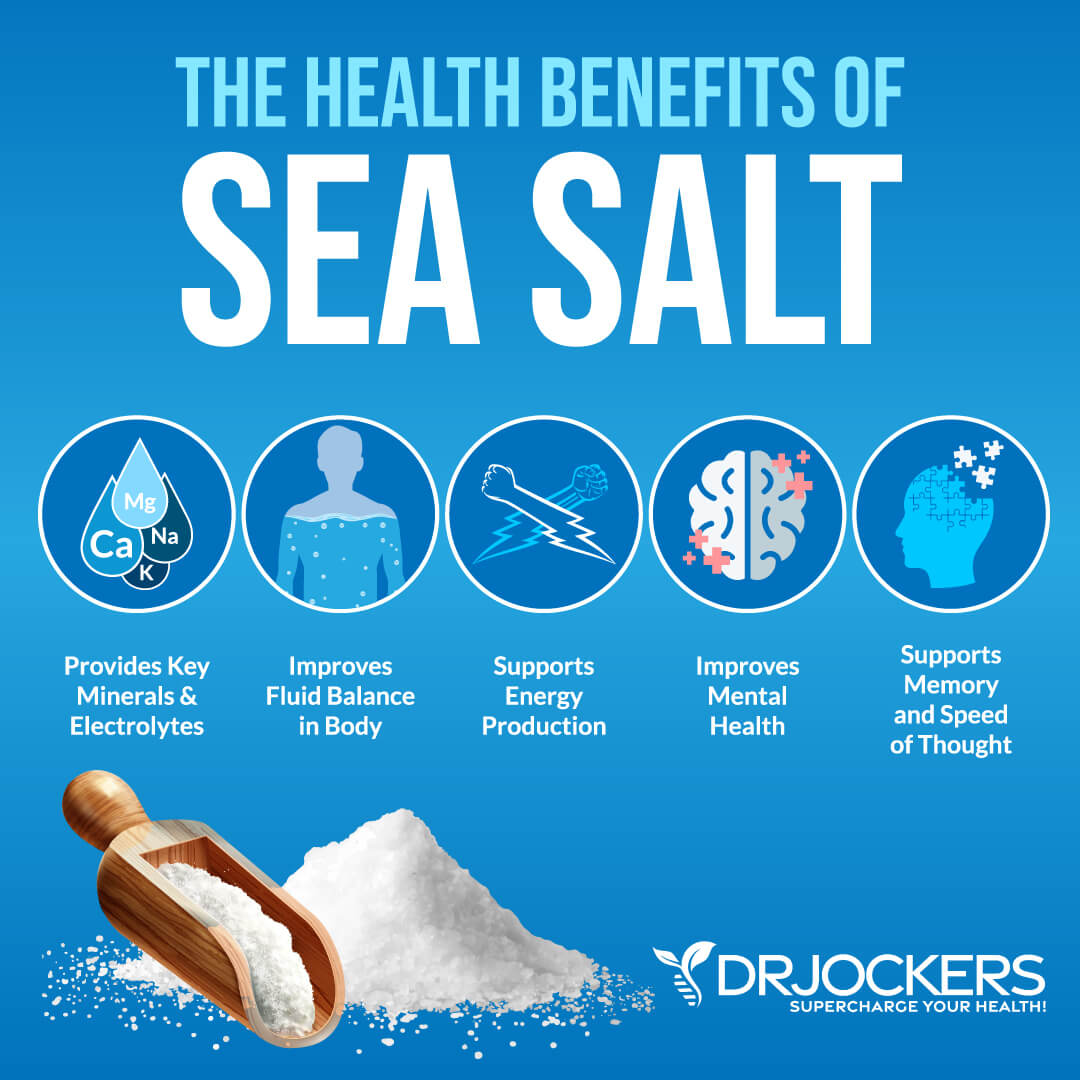
8. Nuts
Almonds, brazil nuts, pecans, and macadamia nuts contain magnesium to help preserve bone density, support cardiovascular health and regulate blood sugar levels. The magnesium in nuts increases testosterone levels aiding in strength, muscle recovery and protein synthesis for metabolism. Nuts are an excellent snack for any athlete to offset the magnesium deficits that occur from increased sweat and urination. (18)
Consuming almonds in one study was associated with a reduction in blood sugar levels following a meal by 40 to 50% (9). Nut consumption has been found to reduce the occurrence of metabolic syndrome in 7% of patients following only one serving of nuts weekly (10). Brazil nuts are the highest source of magnesium and the trace mineral selenium.
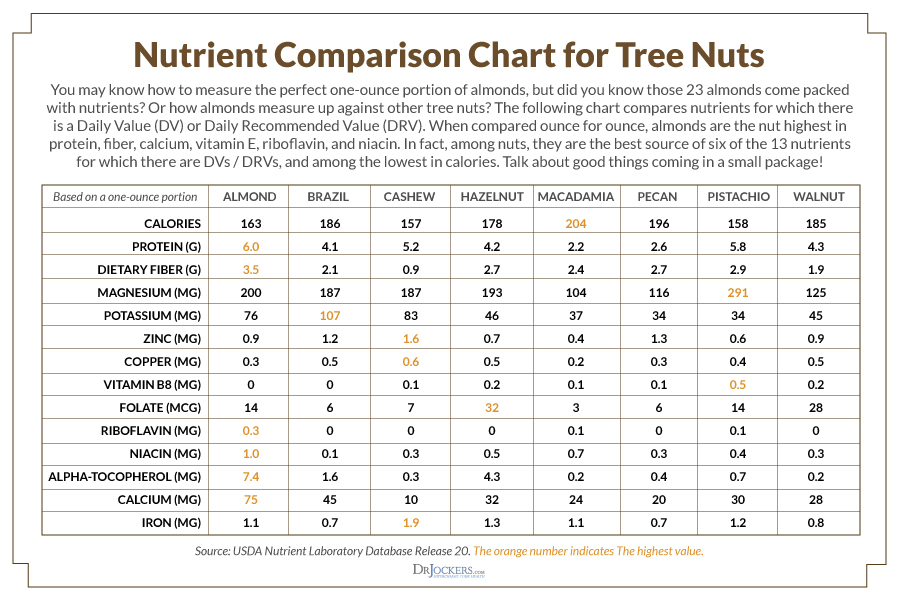
9. Dark Chocolate
You might be surprised to know that unsweetened dark cocoa powder is one of the highest sources of magnesium rich foods. A single ounce of dark chocolate provides 95 mg or about 24% of the recommended daily value of magnesium (13). Just be sure to consume non-processed chocolate that is greater than 70% cacao for its full health benefits. The highest concentrations are in the raw cacao form but minimally processed dark chocolate is also good.
A greater need for magnesium can manifest as cravings for chocolate during a woman’s menstrual cycle. Seen again, greater compulsion to eat chocolate occurs when individuals are overwhelmed by emotional stress and seek a feel good trigger. The magnesium in chocolate provides the stimulus the brain was lacking to improve a person’s mood by balancing hormone levels and brain function. (14)
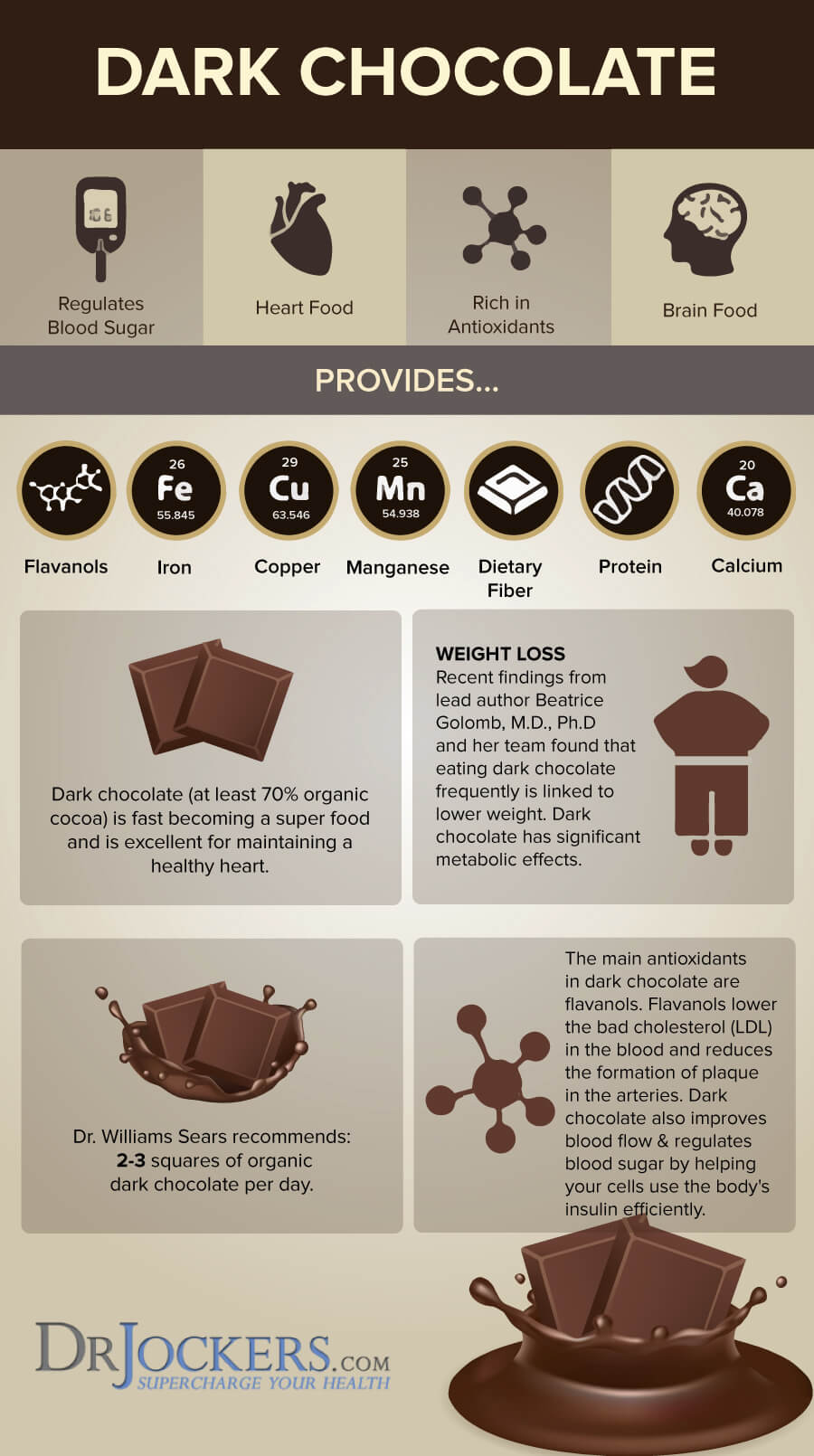
10. Wild-Caught Fish
Wild-caught fish like wild Alaskan salmon, sardines, and halibut offer about 80mg of magnesium in a 2.5 ounce serving which makes them one of the best magnesium rich foods. This food source has a deep nutrient profile because it is also a fantastic source of healthy fats, vitamin D and trace minerals.
Consuming wild-caught fish low in toxicity improves neurological and cardiovascular function as well as protects against bone degeneration. With the prevalence of Alzheimer’s disease expected to reach 104 million by the year 2050, it is critical not to overlook the superfood powers of wild-caught, omega 3 rich fish (19). Weekly consumption can reduce the occurrence of cognitive decline and alleviate symptoms of dementia.

11. Sprouts
Sprouts offer anti-carcinogenic properties and are packed with magnesium amongst a wide array of vitamins like A, B, C and micronutrients. Magnesium in sprouts provides health benefits for the skin, hair and slows the aging process (20).
Choosing organic broccoli, cauliflower and kale sprouts is the best way to ensure you are receiving the greatest concentration of nutrients. Researchers have found that eating 5 servings of sprouts weekly provides the maximum impact to support a healthy gut, reduce inflammation, and detoxify the body of pollutants (21). Toss sprouts over salads, in a stir-fry, or add to wraps and slaws.
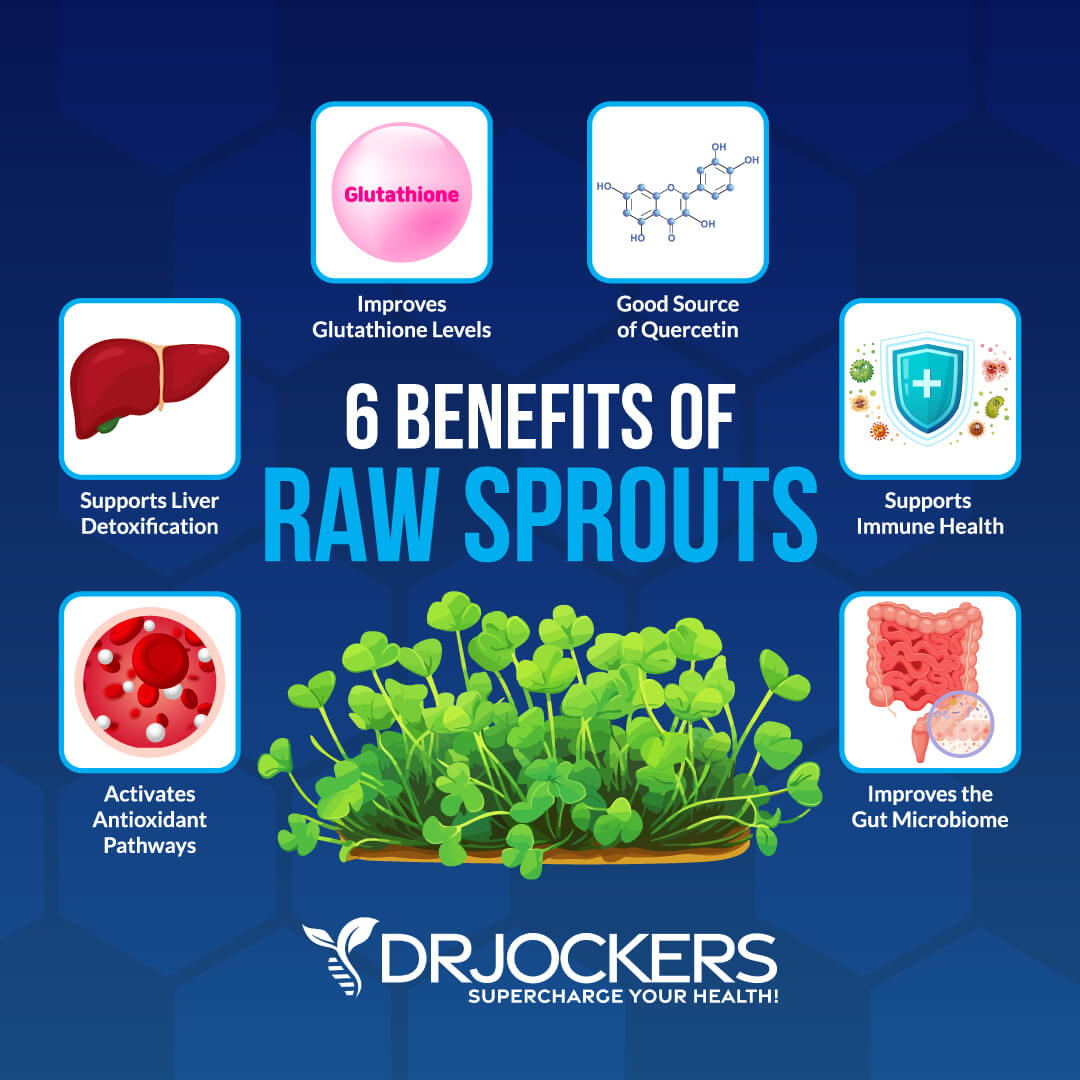
12. Coffee
Given our fast-paced lifestyles, it is no surprise that coffee provides the number one source of antioxidants for Americans today. Drinking coffee in excess can deplete the body of its magnesium stores, but when consumed in normal concentrations, coffee is one of the great magnesium rich foods.
Limit your coffee intake to about 1–2 cups as long as you feel good with that. About 20% of the population are poor caffeine metabolizers; these individuals will have anxiety and irritability when consuming coffee and should avoid it.
The magnesium in coffee is associated with improved metabolic rate and a lower risk of insulin resistance. Researchers have found that coffee intake reduces the risk for type-2 diabetes in both men and women (22, 23).
Along with the health benefiting polyphenols also active in coffee, magnesium intake has been directly shown to lower fasting insulin levels. Drink organic, mycotoxin free coffee to avoid chemical residue from fertilizers and pesticides as well as dangerous mold & mycotoxins.
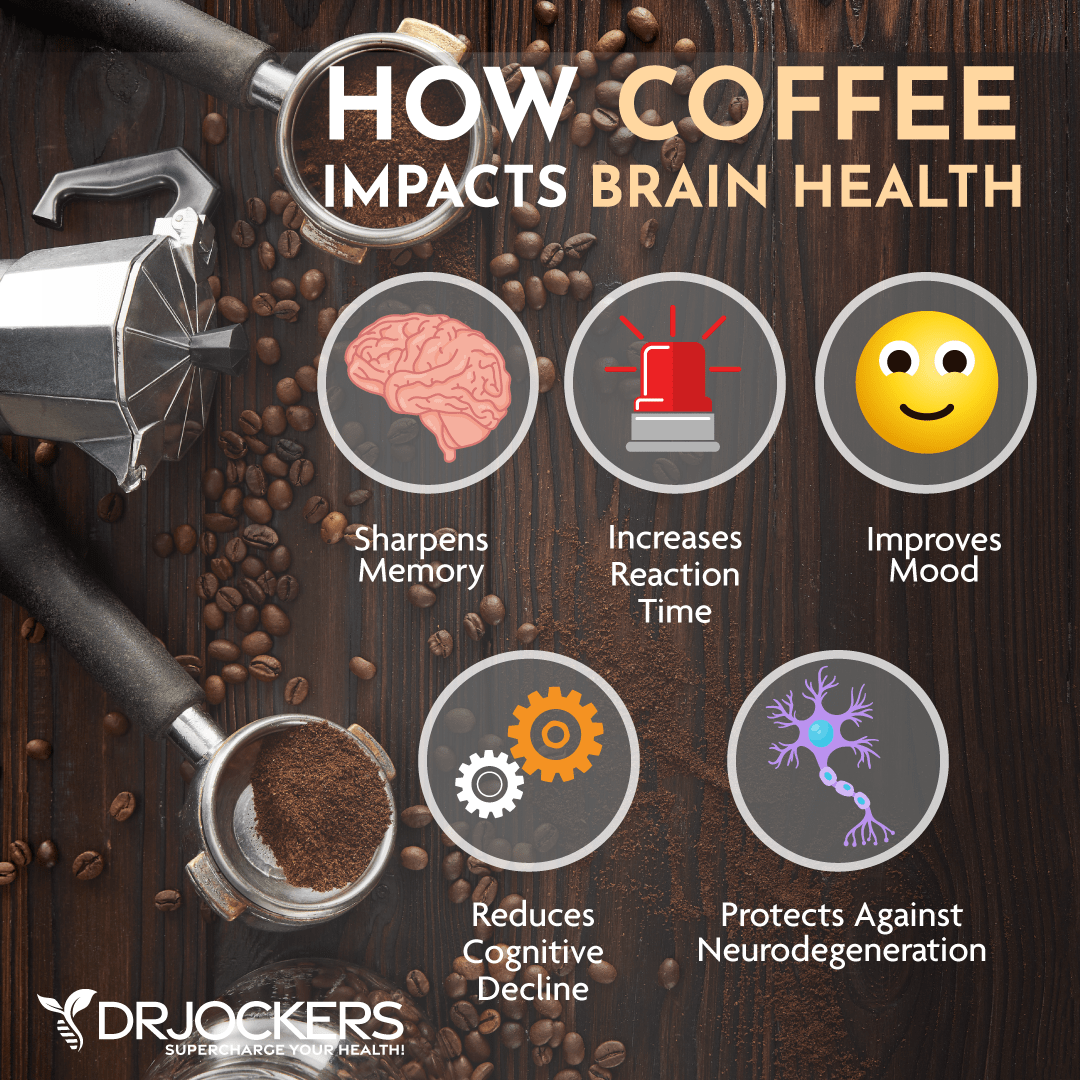
Use an Organic, Mycotoxin Free, Shade Grown Coffee
Low-quality conventional coffee is not great. Pesticides and mycotoxin in coffee can be harmful to your health. It is important that you drink high-quality, organic, mycotoxin-free, and shade-grown coffee for optimal benefits and safety.
I personally love and highly recommend Lifeboost Coffee. This coffee is organic, free from GMO, shade-grown, sun-dried, pesticide and chemical-free, full of antioxidants, stomach-friendly, less acidic than most coffee, and fairly traded with a 2-year shelf life. Most importantly, it is absolutely delicious.
Right now, they have a special sale for my community where you can try this delicious, low-acid, immune boosting coffee for up to 50% off for a limited time.
Supplemental Magnesium
When it comes down to it, our food supply just isn’t what it used to be. Industrialization and poor attention to soil quality has depleted our soil of vital nutrients that used to be passed into the food we ate.
Although we are starting to wake up to this fact and make more conscious efforts to create nourished farming conditions, our food is still lacking in the nutrition our bodies need.
I recommend supplemental magnesium for the majority of my patients. Most people notice immediate results with better stress adaptation, energy, memory, improved bowel tone, mood, productivity and sleep quality. The key is to get the right form of magnesium.
Not all magnesium is made equal. Different forms of magnesium have different benefits, some are better for mental health or sleep, others may have digestive benefits. Some are not bioavailable to your body and are effective in most cases.
I’ve discussed the benefits of different forms of magnesium in this article. Here are the best forms of magnesium for your brain, mental health, and depression.
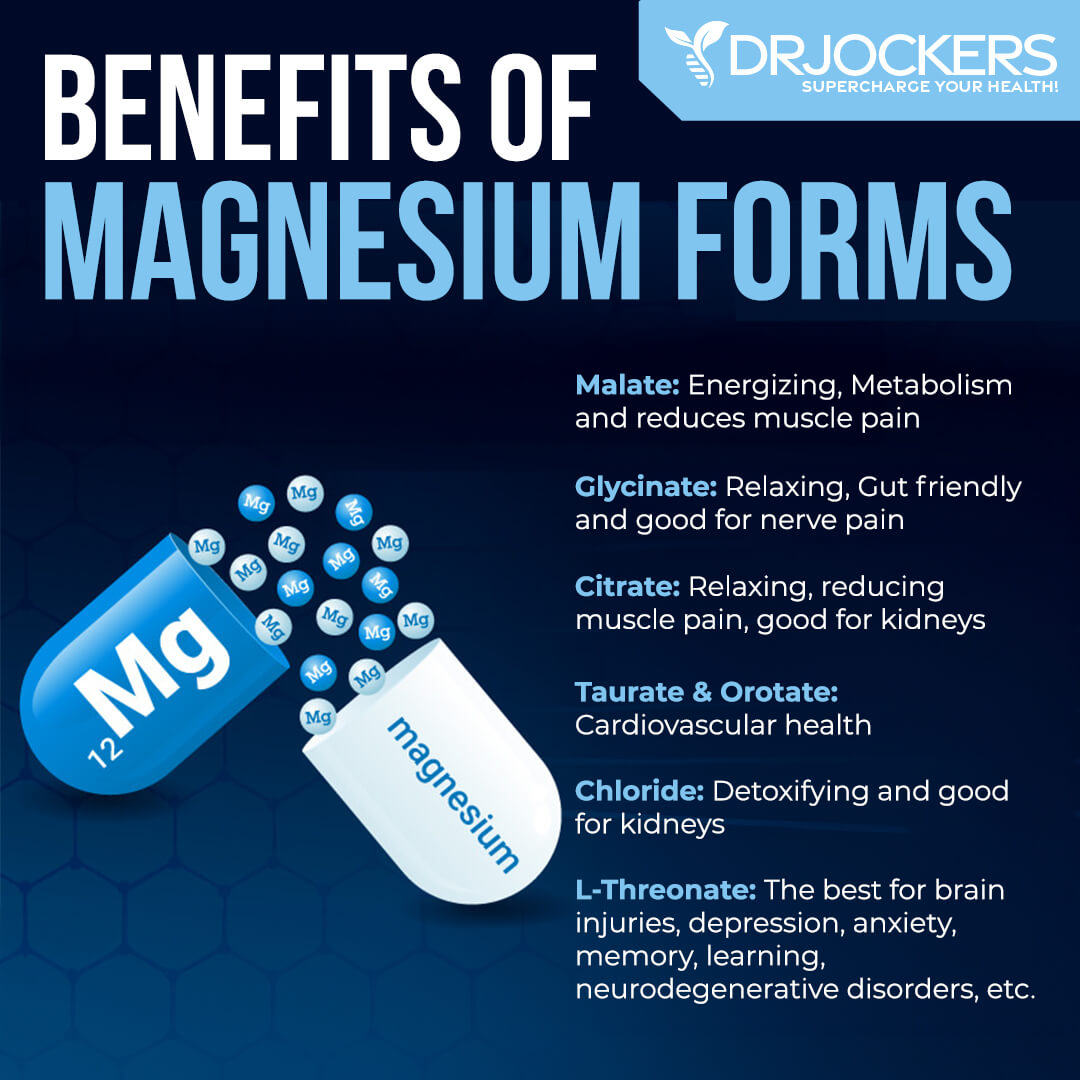
Magnesium Malate
Magnesium malate is a form of magnesium bonded to malic acid. Magnesium malate naturally occurs in many foods, especially in fruits. Malic acid is a key component of the Krebs Cycle, which is the biological process responsible for making ATP energy.
Thus magnesium malate is a great option for improving energy-related disorders, including depression and chronic fatigue syndrome. According to a 2011 study published in Orvosi Hetilap, magnesium malate may help to support a healthy magnesium-calcium balance (24).
Magnesium Glycinate
Magnesium glycinate or chelated magnesium is made up of magnesium and amino acid glycine. According to a 2017 review published in Nutrients, magnesium glycinate is one of the most bioavailable forms of magnesium (25).
Magnesium is a gut-friendly magnesium that’s also great for digestive issues It is the most commonly recommended option for hypomagnesemia or clinically diagnosed magnesium deficiency.
Magnesium L-Threonate
Magnesium L-threonate (MgT) is a newer form of magnesium that’s commonly used for brain and mental health including depression, anxiety, brain fog, cognitive performance, learning, and memory. According to a 2014 study published in Molecular Brain, magnesium threonate may offer neuroprotective and cognitive-boosting benefits that may be protective against Alzheimer’s disease (26).
A 2011 study published in the Journal of Neurosciences has found that magnesium L-threonate may help to support NMDA receptors (NMDARs) signaling, BDNF expression, and synaptic plasticity (27). A 2019 comparative study published in the Pakistani Journal of Pharmaceutical Sciences has found that magnesium L-threonate supplementation may help to improve oxidative stress and neurobehavioral activities (28).
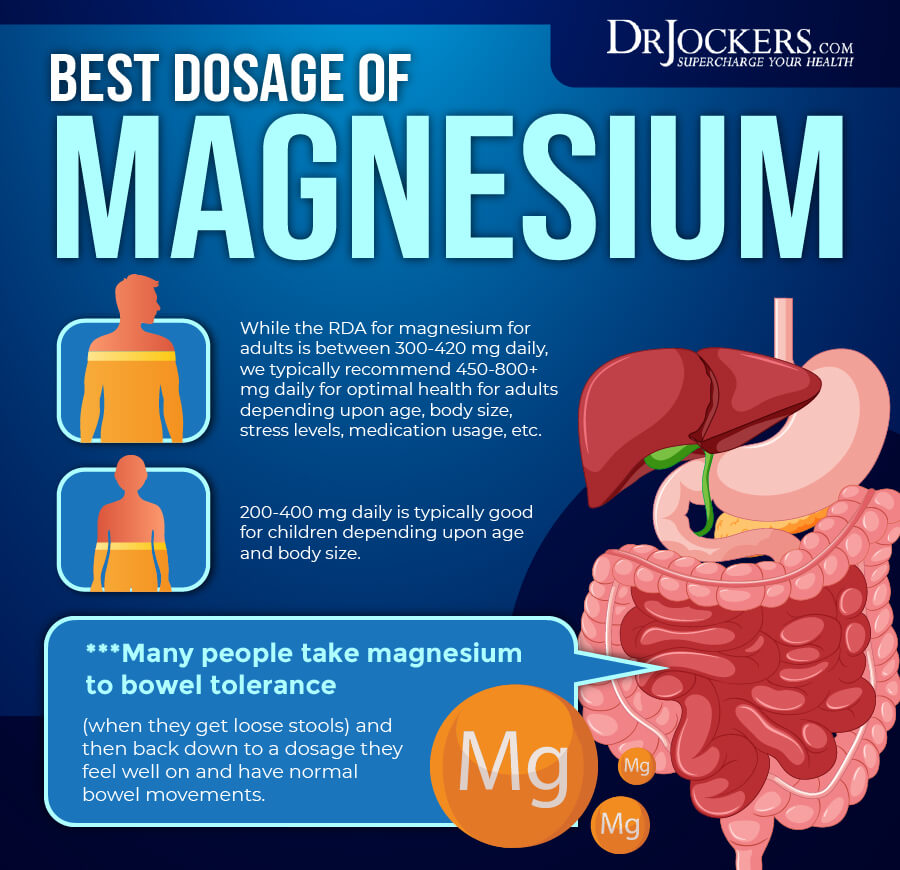
Transdermal Magnesium
Transdermal magnesium comes in a lotion that can be applied to the abdomen or areas of pain for quick absorption that bypasses the digestive tract.
This is important especially in cases where the digestive tract is damaged or compromised and cannot absorb magnesium properly (such as leaky gut). The Ancient Minerals Magnesium with MSM product is a great transdermal lotion that works quickly and effectively. It contains magnesium as well as MSM which helps reduce pain and inflammation and this is a great product to use on sore and painful joints and muscles.
I also like the Ancient Minerals Goodnight lotion which contains transdermal magnesium with melatonin. This is a fantastic product to put on the soles of your feet and on your upper arms before bed to enhance sleep quality.
Introducing Brain Calm Magnesium
I recommend Brain Calm Magnesium. We developed Brain Calm Magnesium in order to provide the best form of magnesium to improve brain function and neuronal health. This product helps you to focus, concentrate and perform at a significantly higher level. In addition, it is fantastic for reducing anxiety while improving mood, memory, and sleep.
Brain Calm Magnesium features key Albion forms of Magnesium (malate, lysinate & glycinate chelate) as well as magnesium L-threonate the only form of magnesium proven in animal studies to cross the blood-brain barrier. Boosting the brain’s magnesium level is vital to healthy cognition, which includes long- and short-term memory, learning, stress management, and sleep.
Because many forms of magnesium have low bioavailability, we carefully selected magnesium compounds backed by research and studies to formulate Brain Calm Magnesium. This product features a unique combination of highly absorbable, organic Albion minerals—di-magnesium malate and magnesium lysinate glycinate chelate—and Magtein.
Magtein is a groundbreaking organic magnesium compound that was developed by MIT (Massachusetts Institute of Technology) researchers to support “brain power.”
Magtein is the result of 10 years of research at MIT. This novel form of magnesium is changing the way we support brain health. Unlike other brain products on the market that work via brain stimulation (often overstimulation), Magtein works via a completely different mechanism.
When brain magnesium levels are not optimal, synapse function deteriorates. By delivering magnesium into synapses, Magtein helps brain cells stay healthy without being overactivated; consequently, brain cells respond to signals with clarity and robustness.
Brain Calm Magnesium supports healthy brain magnesium levels, healthy synapse number, and function, supports memory and cognitive acceleration, supports stress management, helps sleep quality, supports healthy mood, and ensures optimal magnesium intake.
I use Brain Calm Magnesium on a daily basis myself during the daytime in order to improve my concentration and productivity. I also take some at night and have noticed much deeper and more restorative sleeping patterns. I use this product with clients that are struggling with neurodegenerative issues, mental clarity, sleep, and mood issues.
Final Thoughts
By now you understand how important magnesium is for the human body. Even if you do not have any of the common symptoms of magnesium deficiency listed above, just about anyone can benefit from additional magnesium in the diet.
I use magnesium every day as I find that it helps keep my mind at ease and my energy levels balanced. It also has the cool effect of acting as an adaptogen by improving your body’s ability to adapt to everyday stressors. It truly is a modern-day health tonic!
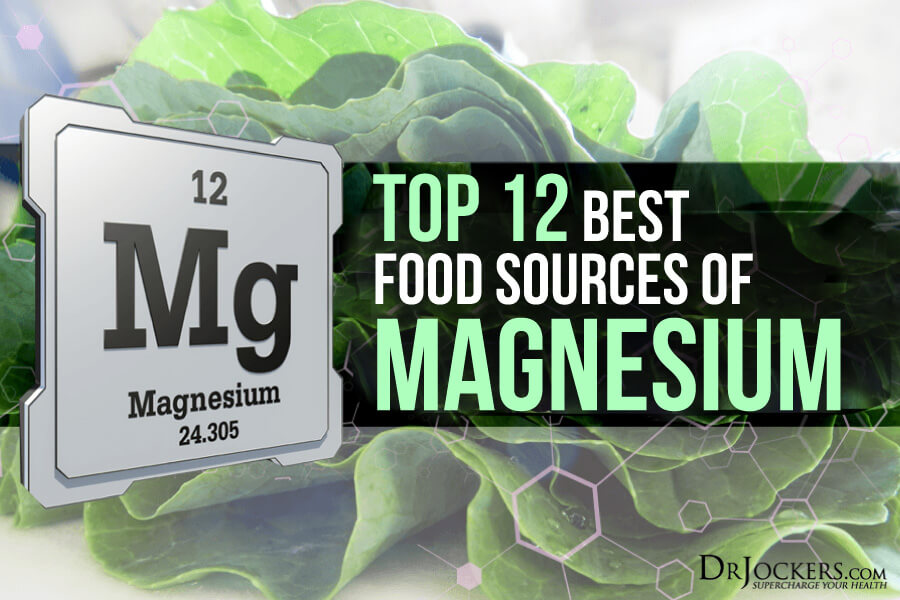
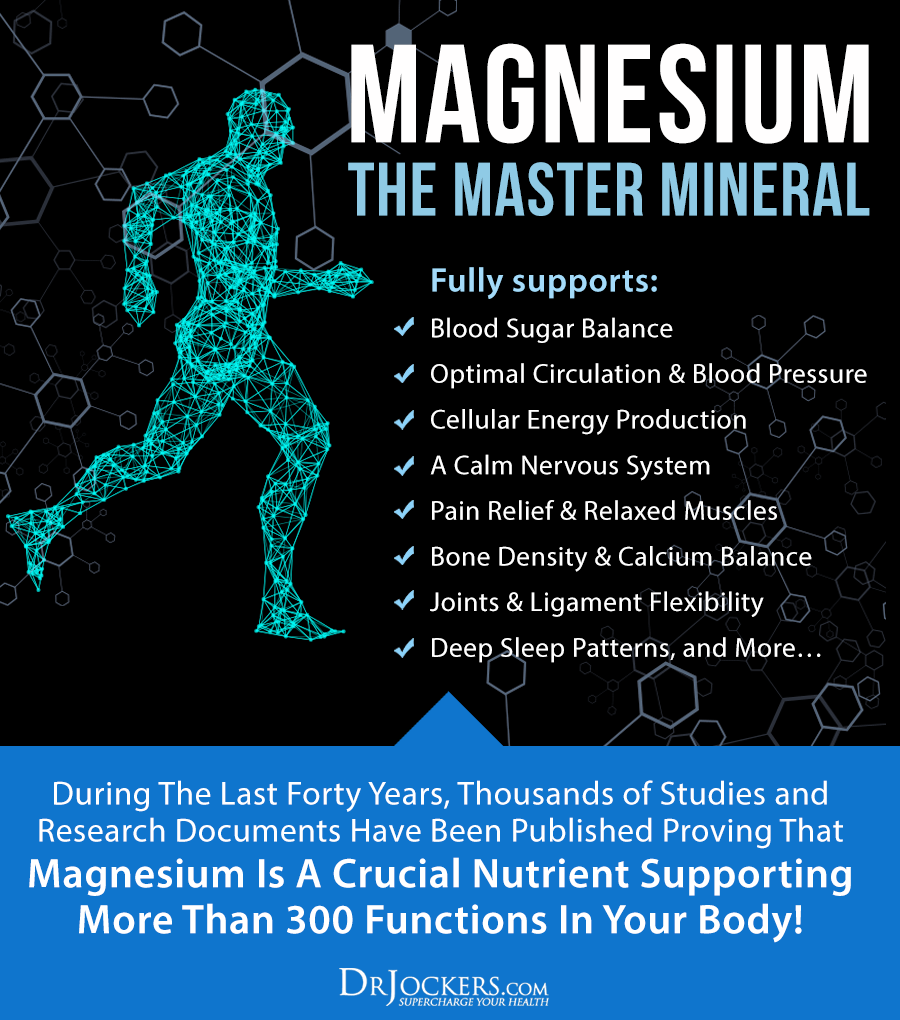







My son and I are already doing the low lectin Plant Paradox program. Now on Dr Oz a red flag about contaminants on green leafy veggies and in spices. Living in a cold country with so many imports, we cannot throw caution to the wind.
I use Shaklee’s blue soap for washing all fruits and veggies. Have recently been putting washed leafy greens in freezer to avoid wasting $ letting them wilt. Then frozen stuff into smoothies. But no more after this alert from the Oz show.
Doing the Keto portion of Dr Gundry’s food plan, but having reoccurrence of gut problems, never sure if the problem is IN the gut or the pelvic area which has sustained 6 abdominal surgeries over the decades. I know for a fact the power of the body to heal otherwise i would have left the planet years ago.
But for the low lectin, it is also advised to eliminate anything with seeds. Not sure if I will continue with sprouts since they are also a source for bacterial contemn. Sometimes is seems like even with 5 decades of education, it is not easy to see progress.
I do admire your very well put together modules of info. Easy access. Kudos to you.
Moving forward on the path of world transfiguration.
Is the Magnesium L-threonate synthetic? Wouldn’t a natural form like magnesium chloride flakes made into an oil (50/50 with distilled water) and applied topically be a better option?
I have seen success with both oral and topical application! Technically, magnesium chloride is more natural.
Hi Dr
I am 36 and have AF due mitral valve rurge. And I am on Verapamil 40mg twice a day but I have been experienced a lot of side effects that I can’t bare any more. So, do you think magnesium will help my situation and what type of magnesium would you recommend.
Thank you
So sorry to hear this! Yes, I would recommend a good quality magnesium. Ideally this brain calm magnesium which is the best. I would also recommend our Mito Support https://store.drjockers.com/products/mito-support
I had AF for years, with mitral valve regurgitation. It’s nothing to fool around with. Taking more mg or any other supplement will do nothing for your issues. You have a damaged mitral valve. I suggest that you do what I did. I had my mitral valve replaced and had a MAZE procedure. Now a year later I have no more AF and my heart rate and rhythm are stable and normal with no more meds, especially no blood thinners. I am out of the pill prison. If you have AF and you are not taking blood thinners now, you are a stroke waiting to happen. Do the surgery. I’m happy that I did.
Thanks for sharing Ari!
Hi LC,
The better option would have been to get all your Mg. needs from food, but since that didn’t happen, the best option could be to take the flakes dermally, consume the L-threonate and perhaps take other forms to make up for the lifetime of deficiency, along with the suggested foods mentioned. If you grow your own food, then a good option would be to supplement chosen plants with the minerals you need.
Check your text under grass fed butter. CLA is NOT conjugated linoleum acid. Please change to conjugated linoleic acid.
Haha must have been an auto-correct moment! Thanks for pointing that out Sharron!
Pine nuts are pricey but they are one of the best sources of magnesium. Also, many regions of the US, particularly the Southeastern part of the country, have soils that are low in magnesium. If your getting most of your food from that region – even if your eating very well – you may be suffering from magnesium deficiency. Here’s a soil magnesium map of the US – https://mrdata.usgs.gov/geochem/doc/averages/mg/usa.html
Yes, I always recommend additional supplementation for magnesium!
Dear Dr. Jockers,
Don’t ALWAYS recommend my supplementation. While it is a rare condition, I have myasthenia gravis. For those of us with this condition, mg supplementation is problematic, even fatal.
Thanks so much for the tips on parasite cleansing!I have been suffering a great deal since 2015,I have done alot of research myself because of the lack of knowledge of medical doctors..but your advice has been the best yet!I just found your site late tonight but I know what you say is right..I will let you know as soon as success arrives..Thank you and God Bless!!!
Great to hear you got the info you needed here! Be Blessed!
Good evening,
I woukd really like to know what kind of Magnesium supplements do you recommend?
-Epsom Salts 400g |Magnesium Sulphate|
-Epsom Salts (Magnesium Sulphate) 600mg
-Magnesium Citrate Powder, 227 g
-Magnesium³ Complex 350mg Elemental Magnesium 180 Tablets Vegan – Magnesium Citrate + Magnesium Carbonate + Magnesium Oxide – Best Bioavailability Without Magnesium Stearate
-Magnesium L-Threonate (90 per bottle): 30 Day Supply – Dr Mercola
Kind Regards
Corina Pana
Yes here is a helpful article: https://drjockers.com/best-magnesium-supplement/
I read the article in the above link, no mention of best form of Mg for afib. What would you recommend?
Magnesium malate is great for Afib!
Hello,
Please add ‘Micro-greens’ to your list of foods to eat.
They are the most amazing of all.
Thank you so much for all you do.
You assist me and my ‘health journey’…
Sumara
Hi Sumara, Thanks for sharing. Yes, microgreens are a rich source of many key nutrients!
I protest your inclusion of dark chocolate, or any kind of chocolate. Chocolate not only is not particularly high in Mg, it is high in anti-nutrients. Look it up.
Chocolate may have the benefits you describe, but it’s not about the Mg.
Thanks for sharing Samia. Unless you have an intolerance or allergy to cacao, moderate intake of chocolate with a high cacao content can be included in a well balanced diet. It is even available with alternative sweeteners like stevia. Medical literature continues to identify anti-inflammatory and antioxidant properties of cacao found in dark chocolate.
What does RIME mean under coffee. Did not find a dictionary term that seemed to fit. Thx
Hi Roberta, It seems like a mis-spelling but I can’t locate the word under coffee.
I don’t love #4, but like it enough to eat it daily…part of healthy eating. But sadly, most foods recommended I do not care to eat, which adds to the stress of my life. I like dark chocolate, but would rather have a DQ strawberry milkshake…what is the quality of said shakes?
Hi Robyn, I don’t recommend these milkshakes as they are rich in sugar and preservatives and are inflammatory to the body. If you enjoy milkshakes try adding small amounts of avocado into a chocolate smoothie or try this recipe: https://drjockers.com/chocolate-avocado-truffles/
I wish I could order from you by land line phone, as I am an old timer, don;t trust using my credit card number on line, ( hear too many horror stories),, but, I like doing my ordering like I do from Dr. Mercola, wish you had a phone service like his too.
Hey Yvonne – you can, just call us here: (678) 884-3561
Very good interesting reading worth passing around the trouble is when you print it off so you can read it on the way to work on public transport for example, all the links for further reading are useless, all you see is “link here” strange how nobody has figured that out, but nobody can fix anything today, Be a devil why not start a trend.
The name for
Vitamin A is Retinol
Vitamin B6 is Pyridoxine
I appreciate your articles Dr Jockers. Thanks for all your research. I wanted to read this one in particular as I have seemed to have problems lately with many forms of magnesium; I have tried topical and oral. For a many years I took Mg glycinate (600 mg) until recently it seemed less effective. Then I have tried other forms that did not agree and gave me some symptom. I used Mg threanate for a time then could no longer tolerate it. This is true for me with herbs & some supplements no matter the quality. Perhaps happens with others too. Most recently, I have been using a Mg capsule formula with 7 forms. At first it seemed to cause me low back pain in mornings (as did topical mg forms I’ve tried) so I stopped it and any Mg for a few days. This gave some relief so seems I may have become sensitized somehow. Last 2 nights I took this formula again and it seems ok so maybe taking a break was helpful. I sure don’t want to rely only on food for Mg as I cannot/do not eat many of those listed but maybe it would be ok for a while. Some of these food sources, I would not recommend like spinach or chard, certain nuts like almonds & cashews, and dk chocolate. These are all very high in oxalates which is more than a problem for kidney stone formers (not me) bc oxalates are very hard on the body and in high amounts may overwhelm the body’s ability to process & discard them in which case they can accumulate anywhere and cause all sorts of problems, and pain. I recently started a lower ox diet and before that had to remove chocolate as I became sensitized to it & had obvious gut irritation consuming 65-70% dark. So just wanted to add the caution about the oxalates as they are high in many vegetables, grains, beans, nuts & seeds. Over time vegetarians can really get into trouble with these. It takes time to get them out of body where they have been deposited and can cause symptoms as body tries to remove them (can’t happen while still consuming ox in higher quantity however). SallyKNorton(.com) is one authority and resource for those who discover they’re pain is due to Oxalate poisoning. It’s a little known cause of many ppls pain!
I am sure because of the symptoms that you list that I have magnesium deficiency. I have tried all kinds of magnesium supplements and get extreme gastric distress. I can’t waste my money we are on a fixed income. Do epson salts do any good? What else can I try? Thank you
Sorry to hear that! Yes, absolutely Epsom salt baths can be great! https://drjockers.com/health-benefits-epsom-salt-baths/
You can also do topical magnesium such as this one here: https://store.drjockers.com/products/magnesium-lotion-goodnight-with-melatonin
I would like to point out that avocados take 28 gallons of water to grow one avocado. Avocados are grown in areas that are already stressed for water. Plus, mega farm conglomerates have literally pushed out small farmers in numerous countries and the drug cartels of Mexico are getting involved in stealing truckloads of avocados because there is so much money involved in them, and profit on the high end of the avocado chain.
Thanks for sharing Ken!
Dr. Jockers had a personal favourite Magnesium salt for soaking in. I’m trying to find it in this article
Dr. Jockers, I have followed your blogs for quite some time; my particular issue, a neuroendocrine tumor, makes it difficult, if not downright impossible for me to get many of my nutrients from food sources, because many foods contain high levels of tyramine, and if I consume those particular foods, the result is very elevated BP levels. I take an alpha adrenergic and a beta adrenergic blocker to control my BP, but I am missing out on a lot of nutritious foods. Luckily, I am able to eat some of the foods you recommend. The solution to my medical dilemma is to have this tumor removed, but since it’s a rare condition to begin with, I’ve been told I have to travel to a major metropolitan area, because there are no experts in my area.
Hi Katie,
I also had a NET tumor and surgery to remove it in 2016. Fortunately I am in a metropolitan area where there was a Center of Excellence for NET tumors. What area of the country are you in?
Debbie
Magnesium is an essential supplement for me both orally and topically. I don’t get too much taking 6-700 mg daily as I am very physically active. A Mg threonate supp I once took did not agree with me, maybe I should try yours but if my stomach or gut doesn’t like it, it won’t matter. As to foods, I don’t think we can get enough from them unless maybe we really focus on that. But 4 of the things on your list are very bad in terms of extremely high Oxalate content so I simply won’t eat them anymore (and not bc I was having kidney stones or other actual symptoms). It’s just prudent to not consume too much Oxalate in ones daily or weekly diet but takes intent as many foods are high in them. The 4 items shown above that are: Swiss chard, spinach, chocolate and many nuts – ESPECIALLY almonds which have become over consumed in multiple forms with the Keto diet craze. As to chocolate, my gut could no longer tolerate it; it became very irritating and very possibly due to Oxalate content. Also, Chocolate that is 70% or over, even organic brands, all tested too high in lead, so it’s really not a good thing to consume regularly! Many salts also contain too much lead as tested by a mother whose children had lead poisoning; even many of the pink salts. I’m sorry I don’t remember her name or URL. These are Just a few more things to know, lol!.. Endless these days and a big job to stay up on nutritional info. Plus much controversy surrounds some topics such as copper (found in numerous foods and easy to get).
I can recommend the awesome new book by Sally K Norton called Toxic Superfoods which is a deep dive into the problem with oxalates for anyone who would like to find out if some of their health issues may relate to that – and many do – yet few health practitioners recognize this yet.
Yes absolutely – here is an indepth article on oxalates: https://drjockers.com/low-oxalate-diet-overview-best-foods-and-how-to-do-it/
Re your recommendation of coffee. No one gets Parkinson’s or diabetes because they avoided coffee all their lives. I do acknowledge your warnings, but the reality is that most people who drink coffee, especially those stuck in boring office jobs, are utterly addicted and they do not stop at 1 or 2 cups. Best to just avoid it, as its seemingly positive effects will soon turn on you. I simply don’t know anyone who can start their day without it. Why not recommend a snort of cocaine, too; a controlled, limited intake of cocaine does have its benefits. Coffee is equally addictive.
You have to take a comprehensive, thorough look at foods and substances (I mean, since when is coffee a food?) It is not enough to go into nutrient charts and think, Aha: this food is good because it contains such ‘n’ nutrient. Our bodies are more complicated than that.
SO VERY grateful to Dr. Jockers, but PLEASE stop promoting high phytic/ oxalic acid foods as good sources of magnesium or any other mineral. An estimated 95% of mineral content from high phytate/ oxalate foods is Not bioavailable, Not absorbed. Nor are magnesium or other mineral supplements taken *with* those foods…
SPINACH is the #1 highest food in oxalic acid. Most nuts and seeds are high in phytic acid, and beans/legumes and all whole grains are high in phytic acid. Eat them *away* from mineral supplements, and don’t expect to absorb much of the minerals those foods contain.
Thank you!
To remove phytates, i soak all my grains, rice, (and nuts*) in water, adding vinegar or lemon juice, 12 hours, drain, rinse, then air dry the grains, on a tray, inside the house in winter, out in air in summer, covered with a flex screen so the birds dont eat them all! after they are thoroughly dried, and u must be sure, i jar them, in glass, date it, and then there are fewer phytates. I lovingly labor over my food, i realize this is another process, but its easy and satisfying, and i have done it myself, which in itself provides a quiet sense of purpose. *For nuts, you add salt, not vinegar, to the water, and its a much shorter soak time, but rinse well! Thanks
A lot of great info! And if you are worried about oxylates, just avoid those and please don’t hurt the messenger here, For most of you who read his columns, you are already further ahead, scholastically, than most. I am somewhat versed, but I always learn something. So thank you, Dr Jockers.
May we go back to magnesium 101, yall, i bought CALM, which is Mg Carbonate.
Then thinking i was purchasing “bulk Calm” from Frontier Herb, it was like drinking gravel, yet another type of Mg. Lol that one was Mg Citrate.
Calling all Mag experts, can you shed light? (As the Doctor tends to his pts., but you are certainly welcome to comment on your own website Dr J, yet i am a beginner and know your audience has lots of info! LOL ) thanks all! Love being among you all!